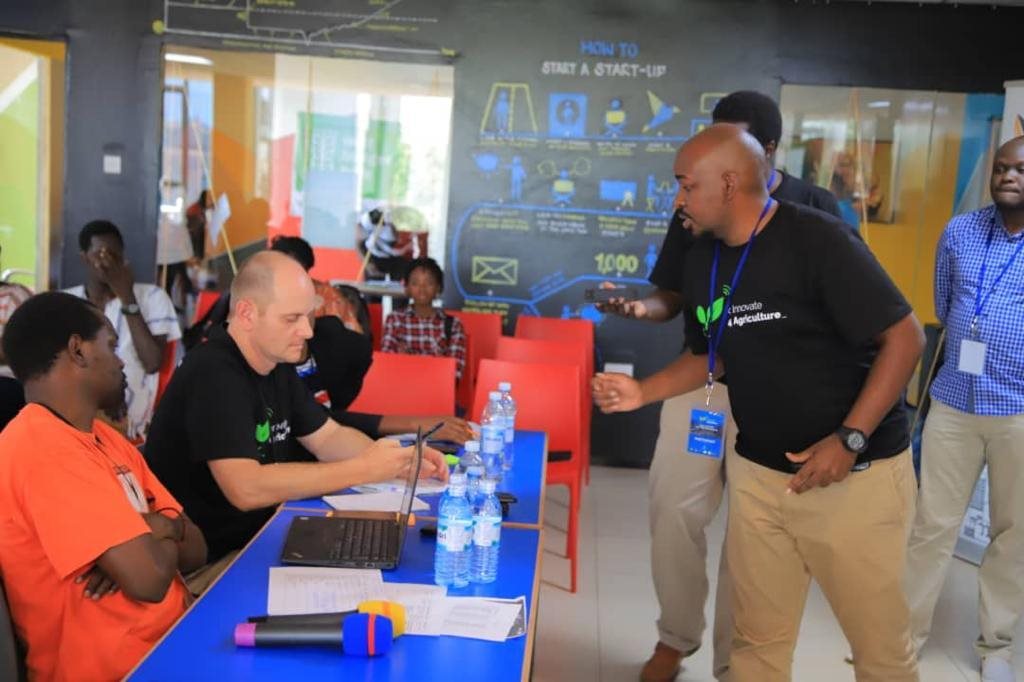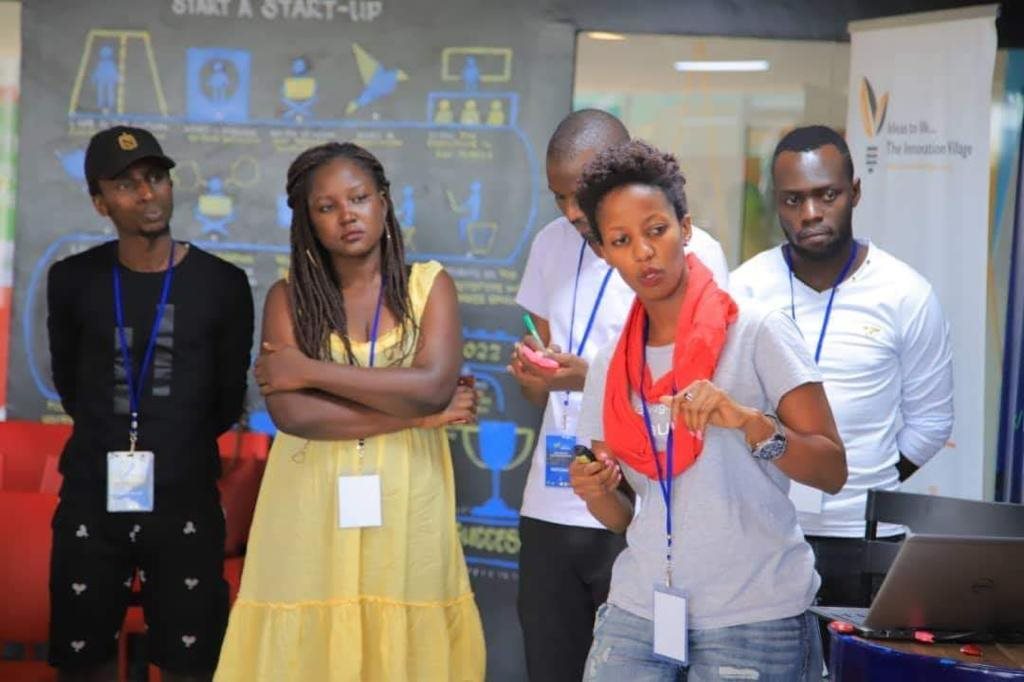Innovate4Agriculture: Bringing together start-ups and agri-businesses in Uganda to speed digital services to rural areas and accelerate innovative solutions
Tags
UNCDF launched its engagement in the agricultural sector with an innovation challenge called Innovate4Agriculture bringing together actors from the agricultural sector and digital innovators who had minimum viable products to offer
Through its MM4P programme, the UN Capital Development Fund (UNCDF) has worked to digitise various aspects of agricultural value chains in Uganda since 2015. The effort is consistent with the programme’s focus on improving the financial lives of vulnerable populations—especially rural people—and thus has concentrated on the digitisation of payments to smallholder farmers.
While understanding and overcoming the obstacles that these farmers face are undoubtedly critical to the digitisation effort, UNCDF recognises that other actors in these agricultural value chains also face significant challenges and could benefit significantly from digital solutions.
UNCDF therefore also addresses the operational issues that private-sector companies confront when attempting to serve rural constituents—problems that affect productivity, efficiency and ultimately revenue.
In particular, UNCDF is engaging with various stakeholders in Ugandan agricultural value chains to do the following:
- Support start-ups to develop relevant digital solutions for the market.
- Support sector partners to access affordable, customised and relevant digital solutions to their challenges.
- Help build the capacity of local innovation hubs by improving their incubation and acceleration process, mentorship curriculum and content, to benefit the start-up ecosystem.
Uganda benefits from an array of start-ups that are involved in digital innovation. Most, however, struggle to (1) understand the real challenges facing customers (farmers and other actors in the value chains), which has led to misaligned solutions that ultimately fail; and (2) pilot test their innovations with reputable, experienced partner organizations, which has meant a lack of iteration/fine-tuning that is a necessary step to ensuring that the solutions match market needs.
Meanwhile, small, medium and large actors in the Ugandan agricultural sector grapple to (1) understand what digital solutions can do for them and how to approach digital solution providers; (2) cover the development cost of digital solutions; and (3) mitigate the risk of working with start-ups for the first time.
 UNCDF launched its engagement in this area with an innovation challenge called ‘Innovate4Agriculture.’ It brought together, on one side, large actors in the agricultural sector (agri-businesses and non-governmental organizations) who faced specific problems that could be solved with digital solutions and, on the other side, digital innovators (pre-seed stage or legally established start-ups) who had minimum viable products to offer.
UNCDF launched its engagement in this area with an innovation challenge called ‘Innovate4Agriculture.’ It brought together, on one side, large actors in the agricultural sector (agri-businesses and non-governmental organizations) who faced specific problems that could be solved with digital solutions and, on the other side, digital innovators (pre-seed stage or legally established start-ups) who had minimum viable products to offer.
The idea was to bring them together to address three specific challenges:
- Building a farmer loyalty programme.
- Improving the management of agricultural value chains.
- Enabling access of farmers to agricultural extension workers, tools and equipment.
The project has three phases: a boot camp, an acceleration programme and a pilot for the emerging solutions. For the boot camp, a call for applications resulted in 50 start-ups applying to take part in the innovation challenge. Of these, 30 were selected to participate in the three-day boot camp. It took place 1–3 February 2019 at the Innovation Village, located in the capital city of Kampala. From those, ten are undergoing a three-month accelerator programme in partnership with three agricultural sector partners that UNCDF selected:
- National Union of Coffee Agribusinesses and Farm Entreprises (NUCAFE).
- Mukwano Industries (AK Oils and Fats Ltd), specifically for its business in the seed-oil value chain.
- Welthungerhilfe, a large German private-aid organization.
The ten solutions that emerged from the boot camp and that are now undergoing acceleration are the following, organised under the challenge that they are addressing:

During the three-month acceleration programme, the 10 teams are undergoing mentoring sessions and conducting field emersions to better customize the solutions to the target users. Then, in April 2019, three start-ups will be chosen as the winners: one start-up per challenge. The winners will receive seed funding from UNCDF to complete the final phase of the project: a pilot of the solutions with the agricultural sector partners.
This project is part of the broader digital@UNCDF strategy, which aims to bring together the various elements and stakeholders necessary to develop and refine digital solutions that are geared towards supporting youth to innovate, developing scalable solutions in the sectors of finance, agriculture, education, health, energy and transportation, and increasing job creation. Learn more and check in on the progress and ultimate results of Innovate4Agriculture at https://cda.ug/i4a/ and the UNCDF-MM4P blog www.uncdf.org/mm4p/blog.